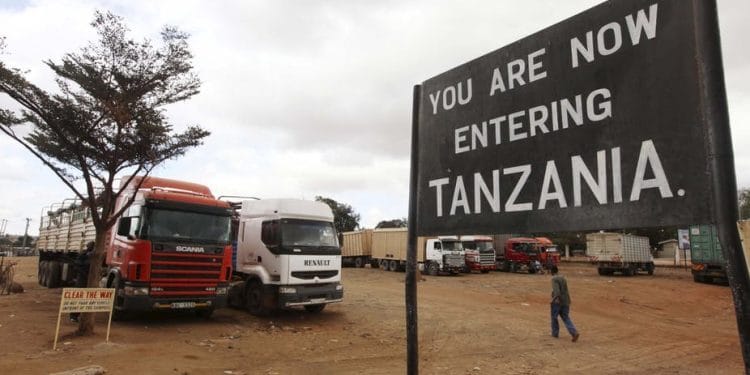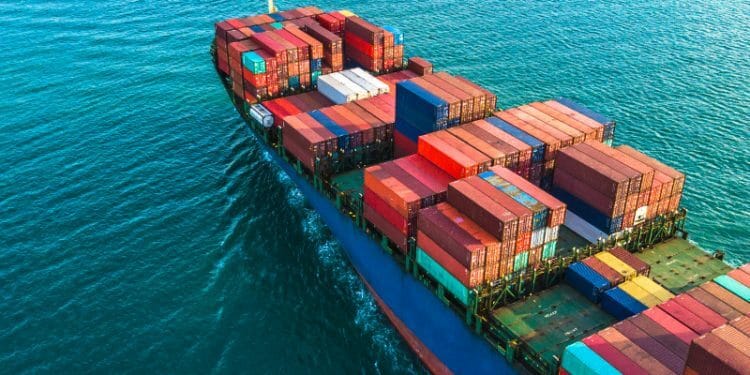- The Daily Brief, by The Kenyan Wall Street
- Posts
- Pursuing Sobriety: No Alcohol Below 21
Pursuing Sobriety: No Alcohol Below 21
Kenya's #1 newsletter among business leaders & policy makers

Kenya is rolling out a sweeping policy that would erase alcohol from online shelves, silence influencer endorsements, and ban public sipping. Meanwhile, across the border, Tanzania is driving out foreigners from salons, kiosks, tour guiding, and a dozen other small trades in a bold push for economic nationalism.
I am Brian from The Kenyan Wall Street and these are our day's business stories:
In Pursuit of Sobriety: Gov't Intends to Tighten Alcohol Regulations
A sweeping new policy targets every sip, scroll, and song that dares to celebrate alcohol.
By Brian Nzomo

The government has unveiled a national policy that would drag Kenya’s drinkers, sellers, and advertisers into a new era of prohibition-lite. The plan, driven by NACADA, intends to raise the legal drinking age from 18 to 21.
The policy also outlaws online sales, influencer endorsements, and the sly social media seductions of beer, gin, or wine. Discounts, free samples, and buy-one-get-one bacchanalia are to vanish, as are any ads featuring under-25s or lifestyle fantasies where alcohol is the it.
Billboards within 300 meters of schools and hospitals will no longer be available, and restaurants, petrol stations, and even supermarkets could lose their licenses to sell alcohol.
Public sipping in parks, hotels, or buses would become a crime. Music videos, films, and performances that make drinking look glamorous will be nudged off the air. Road safety gets its own moral clause: breath tests, suspended licenses, and compulsory counseling await those who are tipsy behind the wheel.
It is a proposed cultural reset, one that imagines a Kenya where alcohol whispers only in the shadows, stripped of charm, discount, and song. Read more here >>>>>
Today's Poll
Do you think NACADA's policy seeking to restrict alcohol consumption will be fruitful? |
“Only Citizens Can Do these Businesses!” – Tanzania
A new order pushes foreign traders out of the country’s smallest businesses.
By Brian Nzomo

Tanzania has drawn a hard line on economic nationalism, banning foreigners from running 15 types of small businesses; from salons and curio shops to mobile money kiosks and tour guiding.
Under the 2025 order, no new licenses will be issued, and current permits will quietly expire, forcing expatriates to shutter their shops or leave. The penalties are sharp: fines up to 10 million shillings, six months in jail, and visa revocations for anyone defying the rules.
The government says the move will protect local traders, but it has already rattled small investors from Kenya, Asia, and neighboring countries who have long thrived in Tanzania’s grassroots economy. Critics see it as a blow to East African integration, especially since Tanzanians still enjoy freer access to businesses in other EAC states. Read more >>>>>
Also Read
NSE Gainers & Losers

Source: NSE
Insight
☁️ Why Cloud Contact Centres Are the Future of African Business Communications

The African contact center is shedding its wires, server rooms, and costly IT baggage. In its place: cloud-native platforms like Telvoip, built for the continent’s fast-moving, mobile-first consumers. Businesses can now launch full-scale customer care operations in minutes with no hardware, no borders, no excuses. From Kilifi to Kinshasa, teams are engaging customers across voice, WhatsApp, and email, all from a single dashboard. As Africa’s digital economy matures, the new frontier of customer service is already online. Read more »»»»»
Opinion
💱 Strengthening Africa-Caribbean Trade and Investment in an Era of Global Trade Disruption
By Benedict Oramah & Pamela Coke-Hamilton

Africa and the Caribbean are closer than they seem: culturally, commercially, and now, strategically. With bilateral trade stuck below 6% and US$2.1 billion in untapped potential, a new era of South-South cooperation is quietly taking shape. From fashion to film, from processed goods to fintech, both regions are aligning their strengths to outmaneuver global trade turbulence. But logistics, tariffs, and weak infrastructure still threaten the promise. As ACTIF 2025 kicks off in Grenada, bridging the Atlantic is on the spotlight. Click here to read the full article »»»»»
Stories you missed
♦️ Companies. British multinational alcoholic beverage company Diageo Plc has launched a review of its majority stake in listed brewer East African Breweries Ltd (EABL).
♦️ Capital Markets. Bamburi Cement Plc is on the brink of delisting from the Nairobi Securities Exchange (NSE) after the NSE extended its suspension of trading, following a near-total buyout by Tanzania’s Amsons Group.
♦️ Energy. The Kenya Electricity Transmission Company (KETRACO), a state agency in-charge of high-voltage electricity infrastructure, is facing deepening financial distress amid audit findings that point to suspected corruption and unauthorized payments
On your watchlist
In this exclusive interview, The Kenyan Wall Street Founder, Eric Asuma sits down with Marula Mining PLC CEO Jason Brewer as he unveils ambitious plans for value addition, local processing, and strategic partnerships like the landmark Baosteel deal.
Keep up with what’s happening on our X and LinkedIn pages. Stay updated with the latest financial news on our website The Kenyan Wall Street.



